A recent story posted on Reddit detailed a situation in which a passenger was forced to deplane after boarding because a service dog was occupying his seat. I looked at the rules when it comes to service animals to figure out who’s in the wrong and what sort of compensation this passenger is owed, if any.
The situation
The subject of this story had booked a front-row main cabin seat to fly out of Newark. Upon boarding, he found a dog sitting in his assigned seat. A handicapped passenger seated next to him claimed that “the dog could not move.” When the man alerted a flight attendant, she sided with the woman, claiming that “since the woman was handicapped and it was a front row MC [main cabin] seat, she could use both seats.”
The man was then told that there was no longer room for him on the flight, that he would need to deplane, and would be booked on a later flight. To add insult to injury, there was a vacant seat in first class, which our passenger offered to pay for and was ultimately refused. To add even more insult to injury, when the man complained, he was given “a better seat within the main cabin” on his new flight, a $15 meal voucher, and 1260 United MileagePlus miles (which are worth around $15).
What are the rules?
Taken at face value, this is a pretty strange situation. Regardless of whether the facts of this story are 100% accurate, I think it presents a good opportunity to dig into the rules and regulations relating to service animals to figure out exactly who’s at fault here and what passengers can do if they find themselves in a similar situation.
To that end, there are three important rules and pieces of guidance on this topic, and they read as follows:
Section 382.77 Air Carrier Access Act:
You [the airline] must permit a service animal to accompany a passenger with a disability on the passenger’s lap or in the passenger’s foot space unless this location and placement would:
- Be inconsistent with safety requirements set by the FAA or the foreign carrier’s government; or
- Encroach into another passenger’s space.
Before refusing to transport a large service animal that cannot be accommodated on the passenger’s lap or in the passenger’s foot space without encroaching into another passenger’s space, you must offer the passenger the opportunity to move with the animal to another seat location within the same class of service, if available on the aircraft, where the animal can be accommodated. You are not required to reseat other passengers to accommodate a service animal except as required for designated priority seats in Subpart F.
Office of Aviation Consumer Protection Guidance:
Once a passenger has been accepted for boarding or has already boarded the flight, airlines are not permitted to require that passenger deplane, unless the removal of the passenger is required by safety, security, or health reasons, or the removal is due to the passenger’s unlawful behavior.
Your dog should sit in the floor space in front of your seat. They can’t be in the aisle or the floor space of the travelers next to you.
Who’s right? Who’s wrong?
Let’s walk through each of the above materials one by one.
Section 382.77 of the ACAA essentially tells us that an airline should take reasonable measures to accommodate a service dog that is too large to fit in the foot space of a seat, but that it is not required to reseat other passengers, or even accommodate the disabled passenger in a different class. All this is to say that, according to the ACAA, the flight attendant was in no way required to act the way she did.
Guidance from the Office of Aviation Consumer Protection is relevant because the subject of our story was offloaded from his flight after he had already boarded, despite DOT guidance specifically forbidding airlines from removing passengers in all but a few strict circumstances. Whereas the ACAA rules tell us that the flight attendant wasn’t required to offload the passenger, this guidance actually suggests she was in breach of DOT rules by doing so.
Finally, United Airlines’ own policy clearly stipulates that service dogs should sit on the floor in front of a passenger. It makes no mention of policies to accommodate larger dogs and certainly doesn’t state anything about removing other passengers to make space for service animals.
In summary, it appears that not only was the United flight attendant in question not required to offload the passenger according to both the ACAA and United’s own policy, but she was also probably in contravention of DOT rules.
To what compensation is this passenger entitled?
The Department of Transportation clearly lays out how to determine the compensation owed to passengers who are denied boarding. Though the passenger in our story was actually allowed to board and then offloaded, he should still probably be able to claim compensation under the rules for domestic denial of boarding. Compensation is calculated as follows:
- 0-1 hour arrival delay: no compensation
- 1-2 hour arrival delay: 200% of one-way fare (airlines may limit the compensation to $775 if 200% of the one-way fare is higher than $775)
- More than 2-hour arrival delay: 400% of one-way fare (airlines may limit the compensation to $1,550 if 400% of the one-way fare is higher than $1,550)
Keep in mind that these figures are only what United is legally required to shell out. The passenger may also be able to claim further compensation from United as a gesture of goodwill.
Conclusion
Though it’s pretty obvious that the United flight attendant acted inappropriately, I actually sympathize with her. The rules on this are complicated, and it’s United’s responsibility to ensure that their cabin crew understands them, rather than leaving these sorts of decisions up to the best judgment of whichever flight attendant happens to be on duty.
At the same time, the compensation that the passenger was provided by United was woefully inadequate, and he’s
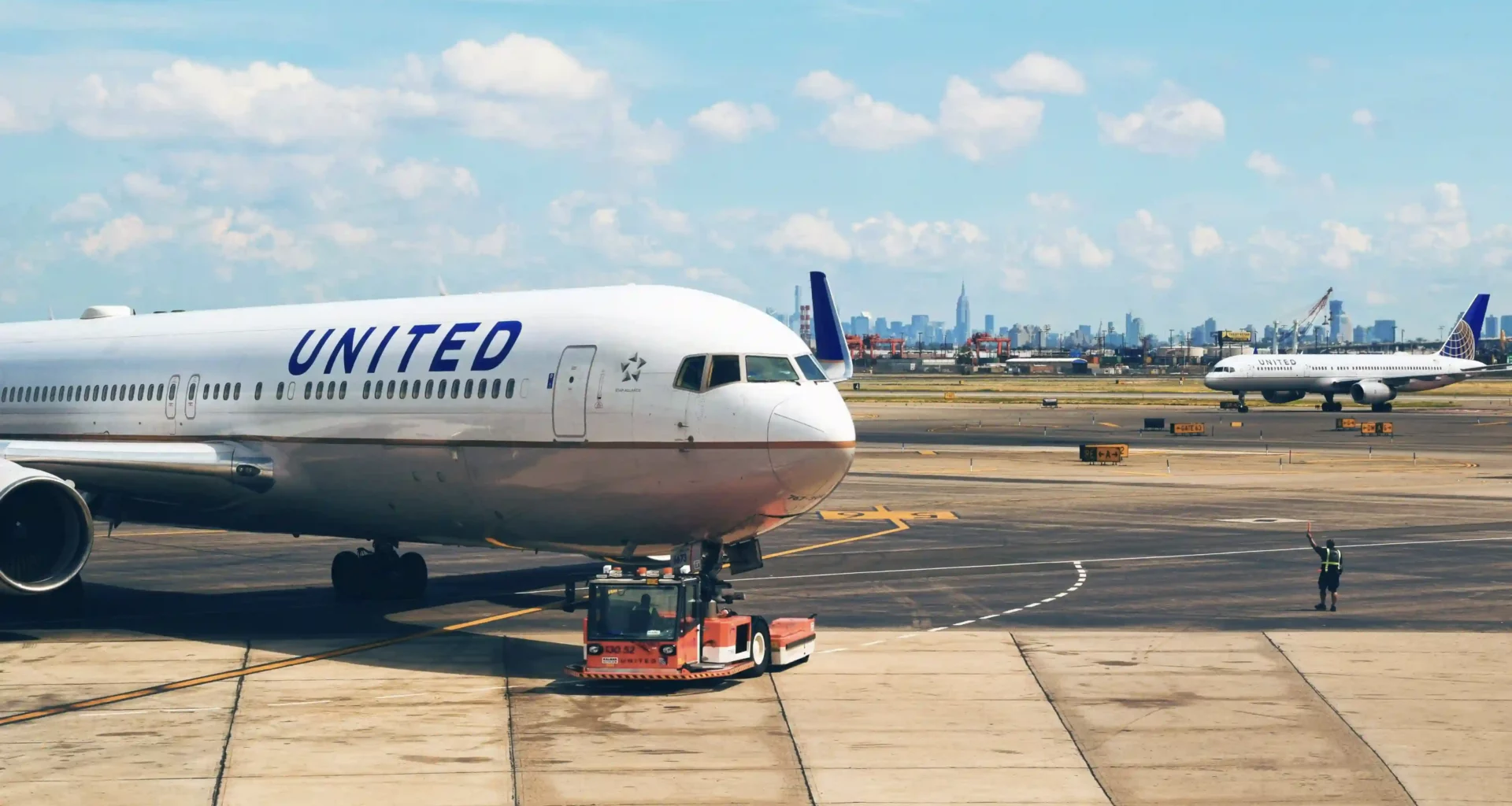
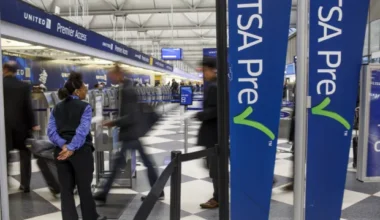
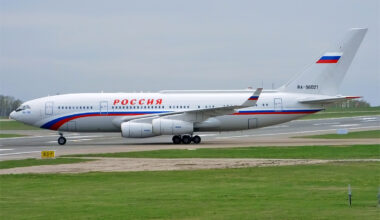
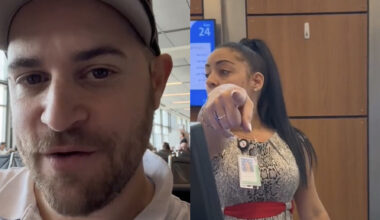

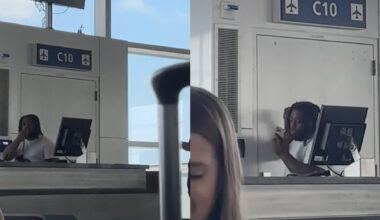
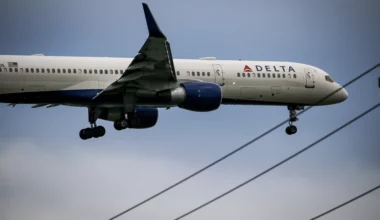
5 comments
Well said, Jason.
I travel with a service dog, but he is small and sits at my feet (sometimes on my lap to look out of the window.)
It is quite clear that service animals cannot occupy a passenger seat unless someone purchases the seat for the dog.
United has a “benefit of the doubt” policy, which is admirable in many respects.
My biggest concern is that these situations enrage the travelling public and lead to sneers and eye rolling from airline staff and passengers. It is humiliating for those of us who travel with disabilities, follow the rules, and ensure our own comfort and safety and for those around us. I keep all my paperwork in neatly bound binders, ensure that my seat assignment will be the best possible place for a dog.
I get tired of whining “emotional support” jokes. It’s just like all of the “miracle” flights to Fort Lauderdale, in which wheelchair-bound passengers can suddenly walk once their priority boarding is complete.
Abuse happens in every system, and air travel is prone to it.
In the end, a CRO should be involved, and the dog should not have occupied a seat.
I would have liked to have known more about the passenger who got an IDB. Was it voluntary? What was the conversation like?
The fact they were able to board in the first place is what really boggles my mind. This should have all been sorted out prior to boarding. Something is off here…
Let’s assume there was no seat in first class since that’s not clear.
Someone had to get off that plane. There was no place for him to sit with the dog present. So either he gets off or the person with dog gets off. Unfortunately the law and UA written policy appear to have a gap for this kind of situation.
I wouldn’t be upset if told to get off for a too large legit service animal, but only if proper invol denied boarding compensation or better was offered and the rebook didn’t compromise the quality of what was purchased.
As a customer… I wouldn’t be super upset… but I wouldn’t be happy. Thank you for pointing out the rules from multiple angles. I still certainly wouldn’t cause a scene on the plane even though I now know the rules now.
Thing is, that handicapped customer knew where the service animal was going to sit…
I think it’s important to note that the flight attendant was more worried about getting in-trouble for forcing the handicapped person to follow the rules… We all know who’s side social media would be on… even with the rules being written in black and white.
I wonder if the passenger in question is getting flight attendant and gate agent confused…. a lot of people really don’t know the difference in terms. If it was truly a flight attendant, their duty would be to request a CRO to deal with it. The flight attendant doesn’t have authority to resolve this in isolation in this manner, and the gate agent should have requested a CRO if that’s what the F/A tried to do. If there truly was an open seat on the plane, in First and this was a domestic flight, I would assume all upgrades were processed by that point so give it to the person without a seat – assuming it wasn’t empty because it was inoperable.
But I agree this is a difficult situation and, as a former airline manager and CRO myself, I’m not 100% certain that this would go the airline’s way if the animal was not accommodated. Though because United designates those seats as the priority seats, they would be in the right to move the complaining passenger to another seat in the same class of service. If no other seats available, I would ask for a volunteer, which technically is what DOT would want you to do before the invol even if everyone is already on the plane.
I forget the carrier (maybe Delta?) where I booked a ticket in the last week and in selecting the first row of main cabin, a note came up that it was fine I select that seat, but be aware that it is designated for those with disabilities so I may be asked to move if the seat (inferred no promises it would be equally good/bad) is needed for that reason.